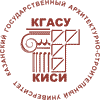About the authors
| First name, Middle name, Last name, Scientific degree, Scientific rank, Current position. Full and brief name of the organization, The organization address. | Evgeny G. Gulyakov, post-graduate student, engineer, Kazan State University of Architecture and Engineering, Kazan, Russian Federation. E-mail: This e-mail address is being protected from spambots. You need JavaScript enabled to view it , ORCID: 0000-0002-7065-8022 Vadim G. Khozin, doctor of technical sciences, professor, Kazan State University of Architecture and Engineering, Kazan, Russian Federation E-mail: This e-mail address is being protected from spambots. You need JavaScript enabled to view it , ORCID: 0000-0003-0874-316X Igor V. Borovskikh, candidate of technical sciences, associate professor, Kazan State University of Architecture and Engineering, Kazan, Russian Federation. E-mail: This e-mail address is being protected from spambots. You need JavaScript enabled to view it , ORCID: 0000-0003-1223-3138 Yulia M. Ganeeva, doctor of chemical sciences, chief scientist, Arbuzov Institute of Organic and Physical Chemistry, FRC Kazan Scientific Center, Russian Academy of Sciences, Kazan, Russian Federation E-mail: This e-mail address is being protected from spambots. You need JavaScript enabled to view it , ORCID: 0000-0002-0940-9377. |
| Title of the article | The influence of superplasticizers on the grindability of Portland cement for the production of low water demand cements |
| Abstract. | Problem statement. The development of technology for producing high-strength concrete is one of the most relevant scientific areas of concrete science at present. The traditional solution to achieving high strength properties of concrete is to increase the activity of cement, which is achieved by increasing the grinding fineness. However, finely ground cements with high specific surface area have increased water demand, which leads to high consumption of water and plasticizers in the concrete composition. The use of low water demand cements makes it possible to combine high activity and low water demand of the binder. It is important to achieve a high specific surface area of cements with low water demand at the lowest energy consumption for grinding. The purpose of the work is to evaluate the grindability of additive-free Portland cement when producing low water demand cement from it in comparison with finely ground cement of equal grinding time. To do this, the following problems were solved: obtaining finely ground cement and cement of low water demand with different types of superplasticizers at the same grinding time of additive-free Portland cement, as well as determining the dependence of the specific surface area on the grinding time and the particle size distribution of the resulting ground binders. Results. The paper presents the results of studies of the influence of aqueous solutions of superplasticizers, in comparison with their dry powders, on the grindability of industrial Portland cement, and identifies the optimal indicators of surfactant concentration at a high specific surface area of low water demand cements. Conclusions. According to the results of the study, the most effective grinding intensifier of Portland cement is an aqueous solution of a superplasticizer based on polycarboxylate ethers, which allows, at a concentration of 0.5% by weight of cement, to achieve the maximum specific surface area among the studied compositions of low water demand cements. |
| Keywords. | cement, finely ground cements, low water demand cements, superplasticizers, grinding intensification, grindability |
| For citations: | Gulyakov E.G., Khozin V.G., Borovskikh I.V., Ganeeva Y.M. The influence of superplasticizers on the grindability of Portland cement for the production of low water demand cements // News KSUAE, 2024, № 2(68), p. 77-91, DOI: 10.48612/NewsKSUAE/68.7, EDN: GINAGZ |
















